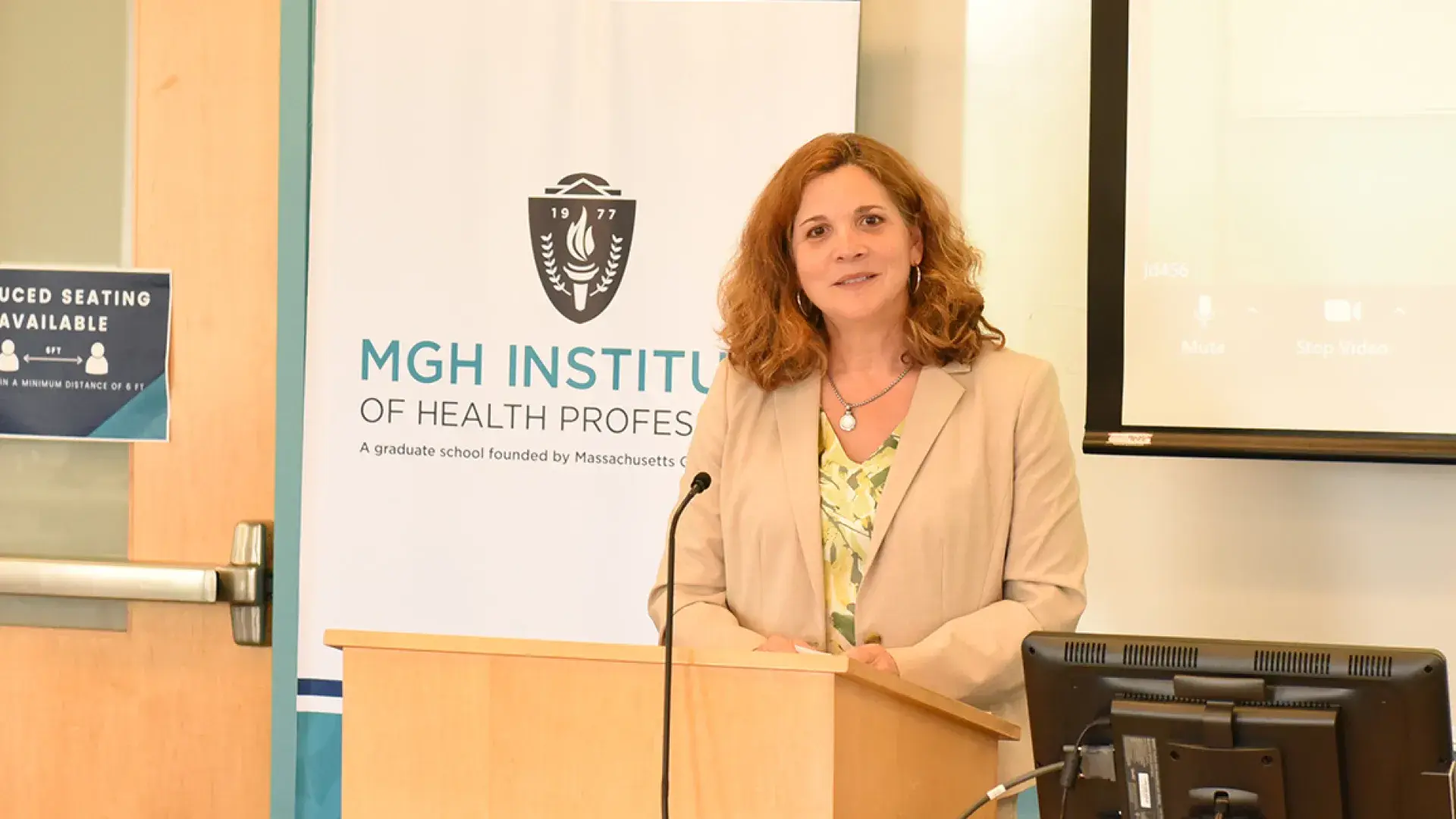
Filling the large number of available health care positions caused by the coronavirus pandemic will be key to Massachusetts’ economic recovery.
That’s a key message delivered by Rosalin Acosta, the state’s Secretary of Labor and Workforce Development. She made the remarks during a visit to the Institute campus on June 15 which was attended by an in-person audience and broadcast virtually.
Acosta noted that health care, the state’s largest industry, was one of the hardest-hit sectors during the depths of the pandemic, losing 91,500 jobs. While the state’s unemployment rate has dropped from an all-time high of 16.4% last April to the current 6.5%, heath care is still down 43,500 positions.
“In addition to bearing the brunt of the front-line response to the health outcomes of the pandemic, the health care industry also bore a disproportionate burden of the economic fallout,” she said, noting the pandemic had created a “rapid run to retire” that has exacerbated the shortage.
Acosta said she was optimistic about the future, pointing to the state having experienced its fastest recovery in history and the $5.4 billion the state has received from the federal government. “This is a reckoning moment and we have to get this right,” she said. “If we do nothing, there will be a shortage of 43,000 health care workers by 2024, leading to significant quality and financial implications,” she said, noting there remains a shortage of 14,000 nurses, the largest amount of vacancies in the health care sector, along with 10,000 direct-care workers and 1,000 behavioral health workers – estimated to have a $15 billion economic impact.
The MGH Institute is a member of the state’s Health Care Collaborative, a private-public initiative created to combat health care shortages. The IHP is one of just six schools on the Nursing Faculty Task Force, which aims to strengthen the nursing pipeline, increase the number of clinical placements and provide supports for nursing faculty.
During her talk, Acosta said people of color are disproportionately being affected by such things as daycare, transportation, and rising housing costs. She also spoke of the glaring need to retrain hundreds of thousands of people so they can find new jobs. “Massachusetts is known as being the first in the country for doing so many things, so why can’t we be leaders in closing the racial equity gap?” she asked.
Before her remarks, Acosta toured the MGH Institute’s Sanders IMPACT Practice Center, where faculty-supervised students in several programs provide more than $1 million annually in pro-bono care to clients, many of whose insurance benefits have expired. “I love what you’re doing here,” she said.
